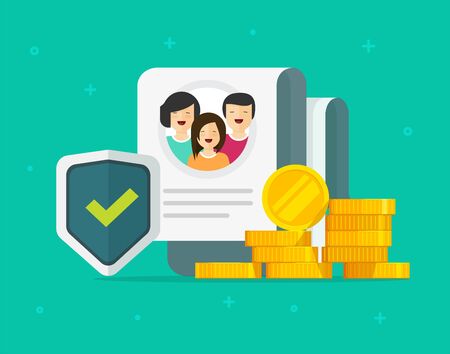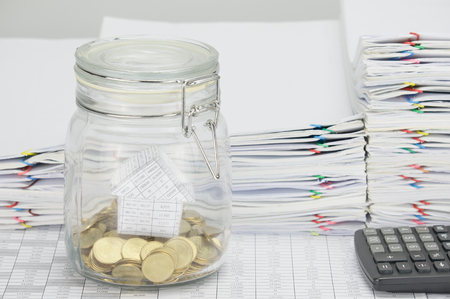Understanding Emergency Funds: The British Context
In the UK, an emergency fund is a dedicated savings pot set aside to cover unexpected expenses or financial shocks, such as sudden loss of income, urgent home repairs, or unforeseen medical costs. While emergency funds are important for everyone, they hold particular significance for self-employed individuals and freelancers, whose incomes tend to fluctuate and lack the security of traditional employment. In Britain’s dynamic gig economy, having a robust emergency fund acts as a vital safety net, providing peace of mind and financial stability when work slows down or payments are delayed. This buffer helps ensure that essential living costs—like rent or mortgage payments, utility bills, and groceries—can still be met even during lean periods. For those navigating the unpredictable nature of self-employment in Britain, building an emergency fund isn’t just good practice—it’s an essential aspect of responsible financial planning.
2. Unique Risks Faced by the Self-Employed and Freelancers
Self-employed individuals and freelancers in Britain operate under a distinct set of financial challenges compared to traditional employees. The most prominent risk is the irregularity of income, which makes monthly budgeting far less predictable. Where salaried workers can rely on a fixed payday, freelancers often experience fluctuations based on the volume and timing of contracts completed. Additionally, delayed payments from clients are commonplace, leading to cash flow problems that can disrupt both personal and business finances.
Irregular Income Patterns
Unlike those with steady employment, freelancers rarely know exactly when or how much money will come in each month. This lack of predictability can make it difficult to plan for regular expenses such as rent, mortgage payments, or utility bills. It also complicates saving for emergencies or future goals, as surplus funds may not always be available.
Client Payment Delays
Late payments remain a significant issue across many industries in Britain, particularly for sole traders and contractors. Even with clear terms stated on invoices, it’s not unusual for payments to be delayed by several weeks or even months. This can put considerable strain on finances, especially when ongoing expenses continue regardless of when income arrives.
Common Financial Vulnerabilities
| Risk Factor | Description | Impact on Finances |
|---|---|---|
| Irregular Income | Earnings fluctuate month-to-month based on workload and demand | Makes budgeting challenging; increases risk of shortfalls |
| Payment Delays | Clients may pay late despite agreed terms | Affects cash flow; can result in missed bill payments or reliance on credit |
| Lack of Statutory Benefits | No sick pay, holiday pay, or redundancy cover from the state | Greater need for personal emergency fund; higher vulnerability during illness or downtime |
Gaps in State Benefits
Another area of concern is the limited access to government-provided safety nets. While employees might qualify for statutory sick pay, paid leave, or redundancy packages, self-employed people must generally fend for themselves. This places extra emphasis on building an emergency fund robust enough to cover periods without work due to sickness, client loss, or economic downturns.
Recognising these unique risks is the first step towards effective financial planning. By understanding where vulnerabilities lie—particularly those inherent to freelancing in Britain—self-employed individuals can design more resilient emergency funds tailored to their specific needs.

3. How Much Should You Set Aside?
Determining the right amount for your emergency fund is crucial for self-employed individuals and freelancers in Britain, as your income can be unpredictable and you may not have access to traditional employee benefits. A good rule of thumb is to save enough to cover at least three to six months’ worth of essential living expenses, but your personal target might need adjustment based on your industry, client base, and average payment cycles.
Guidelines for Calculating Your Emergency Fund
Start by making a realistic budget of your monthly outgoings. In the UK, this should include rent or mortgage payments, council tax, utility bills, groceries, transport costs (such as an Oyster card or petrol), mobile phone and broadband, insurance premiums (including National Insurance if applicable), and any debt repayments. Don’t forget recurring business expenses such as software subscriptions, co-working space fees, or equipment maintenance.
Factoring in Taxes and Business Expenses
Unlike salaried workers who have PAYE deductions handled automatically, you are responsible for setting aside funds for HMRC self-assessment tax returns and National Insurance contributions. It’s wise to build a buffer for these obligations within your emergency fund—consider adding at least 20–30% on top of your monthly living costs to account for tax bills and unexpected business-related expenses.
Adapting to Regional Differences
Living costs vary across the UK; Londoners may need a larger fund due to higher rent and daily expenses, whereas those in other regions might find their needs less demanding. Review local averages from sources like the Office for National Statistics (ONS) and adjust your calculations accordingly.
Building Flexibility into Your Fund
Your financial safety net should give you breathing space during dry spells or when waiting for late payments from clients. By regularly reviewing both your personal and business expenditures, you can ensure that your emergency fund remains fit for purpose—helping you navigate uncertainty with confidence while working towards long-term financial independence.
4. Where to Keep Your Emergency Savings
For self-employed professionals and freelancers in Britain, knowing where to store your emergency fund is as important as building it. The right choice ensures your money remains safe, accessible, and separate from business finances, supporting both peace of mind and financial resilience.
Safe and Accessible Options in the UK
When it comes to emergency savings, two popular UK options stand out: Individual Savings Accounts (ISAs) and easy access savings accounts. Each has unique benefits tailored to different needs:
| Account Type | Main Features | Pros | Cons |
|---|---|---|---|
| Cash ISA | Tax-free interest; annual deposit limit (£20,000 for 2023/24) | No tax on interest; wide choice of providers; can withdraw funds when needed (if flexible ISA) | Some ISAs have withdrawal restrictions; rates may not always be highest |
| Easy Access Savings Account | No withdrawal penalties; instant or next-day access to funds | Highly liquid; simple to manage; often available from high street banks and building societies | Interest is taxable above personal allowance; rates can fluctuate |
| Business Savings Account (for separation) | Dedicated account for business reserves, keeping personal/emergency funds distinct | Keeps business and personal finances clearly separated; helps with tax compliance and budgeting | May offer lower interest rates than personal savings products; not suitable for all emergency fund needs |
Best Practices: Separation from Business Funds
A crucial principle for freelancers is never mixing personal emergency reserves with business cash flow. This avoids accidental overspending and simplifies accounting—especially at tax time. Ideally, set up a dedicated personal savings account solely for your emergency fund. Maintain clear records of any transfers between business profits and your emergency reserve, ensuring you don’t dip into these savings unless absolutely necessary.
Tips for Managing Your Emergency Fund Effectively:
- Name Your Accounts: Most online banking platforms allow you to nickname accounts—label one specifically as your “Emergency Fund” to avoid confusion.
- Avoid Linking Cards: Don’t attach debit cards to this account to reduce temptation for everyday spending.
- Regular Reviews: Schedule a quarterly check-in to ensure the account balance aligns with your current needs and risk profile.
- Automate Transfers: Set up standing orders from your main income account after each client payment or monthly invoice cycle.
A Final Thought on Security and Access
Your emergency fund should strike a balance between earning reasonable interest and remaining instantly accessible. Avoid locking money away in fixed-term bonds or notice accounts that penalise early withdrawals—emergencies demand flexibility. By choosing the right UK savings vehicle and maintaining strict boundaries between business and personal finances, you’ll give yourself the best possible safety net during uncertain times.
5. Accessing State Support and Community Resources
When times get tough, self-employed professionals and freelancers in Britain have more than just their own savings to rely on. The government offers several schemes and support measures designed to help those who work for themselves weather financial storms. Understanding these options is vital for building a resilient emergency fund strategy.
Government Schemes Tailored for the Self-Employed
The UK government provides targeted support for the self-employed during periods of reduced income or hardship. One key example is the Self-Employment Income Support Scheme (SEISS), which was especially significant during the pandemic but has set a precedent for similar future initiatives. While SEISS is not currently active, staying informed about new government updates is crucial as policies evolve in response to economic changes.
Universal Credit: A Safety Net for All
For ongoing support, Universal Credit acts as a safety net for self-employed individuals whose income falls below a certain threshold. You can apply online, and the system now recognises irregular earnings – common among freelancers. Be mindful of the Minimum Income Floor, which may affect your entitlement based on assumed earnings, though this rule has been relaxed at various points in recent years.
Community Grants and Local Council Assistance
Beyond national schemes, many local councils offer crisis grants or discretionary payments to residents facing sudden hardship. These can cover essentials like rent arrears, utility bills, or even food vouchers. Additionally, community organisations and charities such as Turn2us, The Trussell Trust, and local Citizens Advice branches can connect you with grants and practical help tailored to your situation.
By regularly reviewing your eligibility for these resources and keeping an eye on updates from HMRC and local authorities, you ensure that state support complements your personal emergency fund – providing a more comprehensive safety net during challenging times.
6. Systematic Planning: Building and Maintaining Your Buffer
For freelancers and sole traders in Britain, developing a robust emergency fund requires more than just setting aside spare cash; it demands a proactive, systematic approach. Here are practical steps to help you consistently build, review, and adapt your emergency fund strategy, ensuring lasting financial resilience.
Establish Clear Savings Goals
Begin by calculating your essential monthly outgoings—think rent or mortgage, utility bills, Council Tax, groceries, insurance, and minimum debt repayments. Aim to build an emergency fund that covers at least three to six months of these core expenses. Freelancers with highly variable income may wish to extend this buffer even further for extra peace of mind.
Automate Your Savings
Set up a standing order from your business account to a separate savings account on the day you receive payment from clients. Treat this transfer as a non-negotiable expense. Many UK banks offer easy-access savings accounts or ISAs suitable for emergency funds—compare interest rates and withdrawal terms to maximise both accessibility and returns.
Review Regularly
Your financial situation can shift rapidly as a freelancer. Schedule quarterly reviews of your emergency fund: check whether your living costs have changed, if your client mix has altered your income stability, or if inflation has eroded your buffer’s real value. Adjust your savings targets accordingly to stay protected.
Adapt to Life Events
Major life changes—moving house, starting a family, or taking on new business ventures—can all impact your financial needs. When such events arise, revisit your emergency fund strategy promptly. Don’t hesitate to increase your buffer if the risks of income interruption grow.
Stay Disciplined and Avoid Temptation
Your emergency fund should be ring-fenced strictly for genuine emergencies—unexpected loss of income, medical crises, or urgent repairs—not for planned expenses or business investments. If you dip into it, set a clear plan to replenish the balance as soon as possible.
The Value of Professional Advice
If you’re unsure how much you need or where best to keep your buffer, consider consulting a UK-based financial adviser familiar with self-employed realities. They can help tailor a system that fits your specific circumstances and ambitions.
By following these steps and treating your emergency fund as an integral part of your freelance business system, you’ll not only protect yourself from unforeseen setbacks but also gain the freedom and confidence needed to pursue long-term goals—even in uncertain times.


